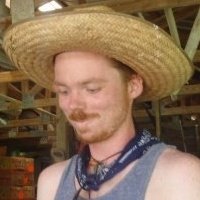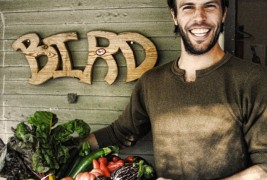As reported recently by Strolling of the Heifers, an organization focusing on local food issues, and covered in an Ecology Florida Feature, Florida is dead last among all states in local food systems. Since finding out Florida is one of the top five agriculture producing states in the Nation and living in one of the state’s most productive agricultural counties (Hillsborough), we must ask, where’s all the local food?
In addition to the challenge of developing local food systems in Florida and subsequently any city in our state, there is an ever-expanding food apartheid happening. The recent HBO special documentary, Weight of the Nation, makes the connection between our subsidized monoculture processed food system and the rise in U.S. health care costs, including the rise in type II diabetes in children.
As we see it, the problem is that these communities didn’t choose this system independently. No one says, “yes, I like bad food that is going to make me unhealthy.” But rather from the illegal immigrant farm worker, to the gourmet chef, to the average homemaker, everyone appreciates and desires healthy food. The reality is that we collectively have built a cheap globalized food system that is making us terribly unhealthy. What is quickly developing is a privileged food system that tells a privileged few they have the choice to be healthy, while denying it to the vast majority.
Now this is a complex problem, and our intent is not to explain why this is happening, but rather to tell you what we, and some others in Tampa, are doing about it.
During a recent visit to Tampa by the famous farmer, Joel Salatin (Food Inc., Fresh, and other works), Ryan Iacovacci, one of the co-founders of the Birdhouse Buying Club and University of South Florida alumnus, asked him to identify the biggest weakness in our local food system. Mr. Salatin made it very clear that our distribution systems are top priority, and are in desperate need to become more efficient. To him this means we need to develop an attitude of cooperation with everyone, from the farmers, to distributors, to the consumer.
How the Birdhouse Buying Club is Changing the Food System

For several years, the Birdhouse Buying Club has been facilitating the distribution of healthy food in Tampa’s Sulphur Springs & Seminole Heights communities. By decision of the leadership, we have recently embarked on plans to become a Food Cooperative. Currently we work with Suncoast Food Alliance as our sole distributor for the majority of our local produce and we personally run to farms that supply eggs, prepackaged certified meats and some minor produce.
If you are interested in joining the Birdhouse Buying Club, please visit our site.
Our mission is to build into a transparent, democratically managed, and membership based food cooperative to distribute affordable healthy locally grown food. This food cooperative will manifest into a brick and mortar store front in Sulphur Springs, from where will be able to market and distribute produce from certified (preferably organic) growers to vendors and consumers in the Tampa Bay area — from individuals, to organizations, to schools, and more.
In accordance with Florida’s Agriculture Commissioner Adam Putnam’s push to get healthy local food into our school system, one of our major aims is to become a supplier of Sulphur Springs Elementary School, improve the health of children in the community, and connect with families in the neighborhood. This will fundamentally transform the food system in Sulphur Springs, but we first must become a certified food cooperative. And in order to become a food cooperative, we must first achieve a few prior objectives.
We have to build our capacity by acquiring a cooler truck and we have to expand our pick up space with coolers and shelving. We are still looking for both. Secondly, we have to build at economy of scale to enable our growth to be sustainable at a professional level — a highly organized collective that not only employs people but also facilitates large volume distribution on a consistent basis. We need to create a business strategy to account for revenue, memberships, grant acquisitions, and well-managed fixed assets
Our envisioned expansion should take us all summer and ultimately prepare us for the deadline of the fall growing season, when farms are in full swing. Combined with a new streamlined processing website, board member development, and organizational structuring, we should be ready to submit our application for food cooperative status by January 2013. Once we build capacity to handle a single restaurant, we will then begin expanding our work, with an initial focus on (but not limited to) Sulphur Springs. Although we still in the formative stages, and necessarily focusing on our immediate community, we understand our work as regional in scope — encompassing the tri-county area of Pasco, Hillsborough, and Pinellas Counties.
Ryan Iacovacci is a co-founder of the Birdhouse Buying Club and University of South Florida alumnus with a B.A. in Religious Studies and International Relations.
Steven A. Williams is a graduate student in Applied Anthropology at USF researching the sociocultural influences on sustainability in food systems.


Leave a Reply